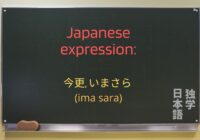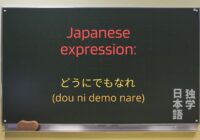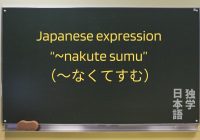Japanese expression “ima sara” (今更、いまさら)
When learning a foreign language, knowing a diverse set of vocabulary words is an important requirement for becoming fluent. However, the number of words commonly used in everyday conversation is somewhat limited (at least compared to the number of words you would find in an average piece of literary fiction), and it’s also important to… Read More »









